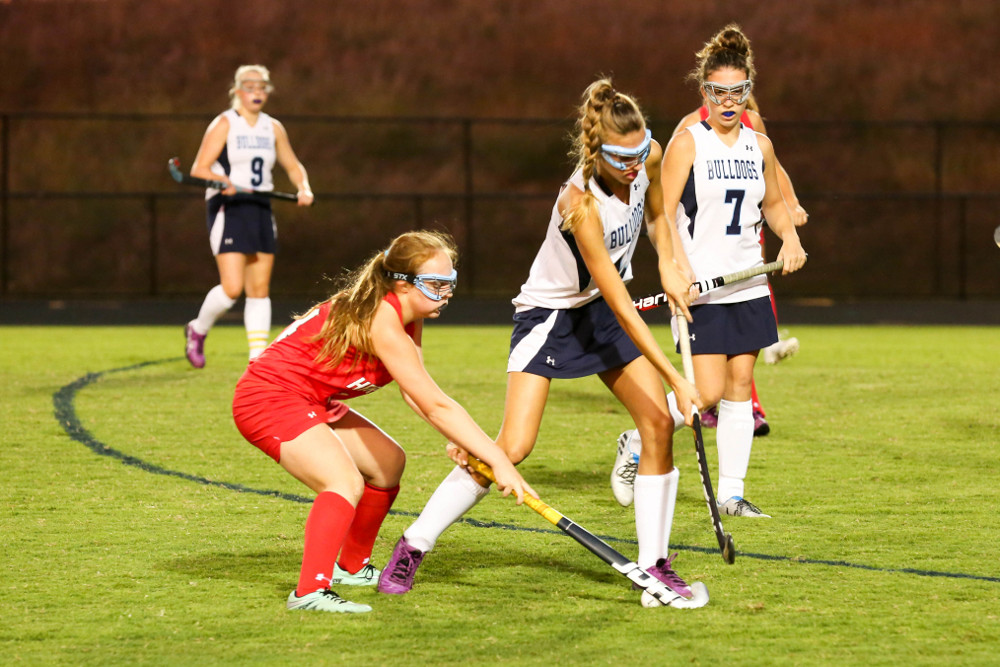Loudoun County, Va. — Bridging the gap between high school student-athletes and college coaches throughout the recruitment process was historically up to the recruit’s high school coach or an external recruiter whose sole job is connecting athletes and coaches. However, with the introduction of Twitter into the recruiting game, connections are being made in other ways, so high school coaches are having to find new ways to stay involved in the recruitment process.
High School Coaches – and Recruiters – Serve as Bridge Builders Between Athletes and Coaches
Before Twitter, high school coaches and external recruiters – or bridge builders – had the responsibility of serving as a connection between prospective student-athletes and college coaches helping them negotiate and understand what each other was looking for. While this practice still happens, Twitter has made connecting with college coaches extremely easy for high school student-athletes without the help of bridge builders.
Alex Kline is a nationally recognized basketball recruiting expert who at 15-years-old signed a partnership deal with Yahoo! Sports to share his expertise, database and connections to publicize the recruitment of the top basketball players across the country. Seven years later, Kline’s self-brand, The Recruit Scoop, is nationally-known.
Kline agrees that social media allow for faster and easier communication and relationship building between prospective student-athletes and college coaches.
“College coaches are trying to be as observant as possible,” Kline said. “A college coach can learn about the guys he is recruiting, what they’re into, and what they’re doing. He can literally be with them [online]24/7. He can build a genuine relationship with recruits.”
Drugs and Alcohol on Twitter Lead to Athletic Doocing
“College coaches can look at tweets and see that the character of a player they’re interested in isn’t up to par.” #SocialMediaRecruits
— Owen Gotimer (@BigO_Gotimer) July 5, 2016
In 2014, a perennial baseball powerhouse recruited a local student-athlete even after the high school coach explained to the college coach – and a tainted Twitter stream proved – that the recruit lacked the positive image the college team was looking for. The college noticed some questionable tweets the kid posted, specifically addressing how much he liked using illegal drugs.
Yet, the college coach still signed the player to his team.
“Some coaches like the challenge of the troubled teenager,” Kline said.
But this student-athlete was too far down the negative road. Less than four months into his college education and before the spring baseball season had even started, the coach had to dismiss the student because of his constant tweeting about his lack of interest in academics and over interest in drugs.
“Over the years, guys have gotten smarter through the stupidity of others,” said Kline who feels athletic doocing is becoming less common.
Egos on Twitter Lead to Athletic Doocing
Kline also argued that prospective student-athletes who tweet or retweet too many tweets about themselves self-present two traits college coaches are not interested in: arrogance and laziness. Kline is referring to student-athletes who spend what he considers too much time on Twitter and not enough time improving their academics or athletics.
“If you have all the time to be online, why don’t you have time to improve your jump shot?” Kline asked.
If you want to join the conversation, use #SocialMediaRecruits on Twitter or Facebook.
This blog is the third of a five-part series on the effect of social media on the recruitment of high school student-athletes. While the series hopes to explain certain aspects of social media use in college recruitment, it is not an inclusive study of everything everyone must know about the process and issues faced in online recruiting:
- Introduction: Social Media Has Changed the Recruiting Landscape
- How Do Athletes Use Social Media During Recruitment?
- How Do Bridge Builders Use Social Media During Recruitment?
- How Do College Coaches Use Social Media During Recruitment?
- Conclusion: Pros of Social Media Use Outweigh the Cons


